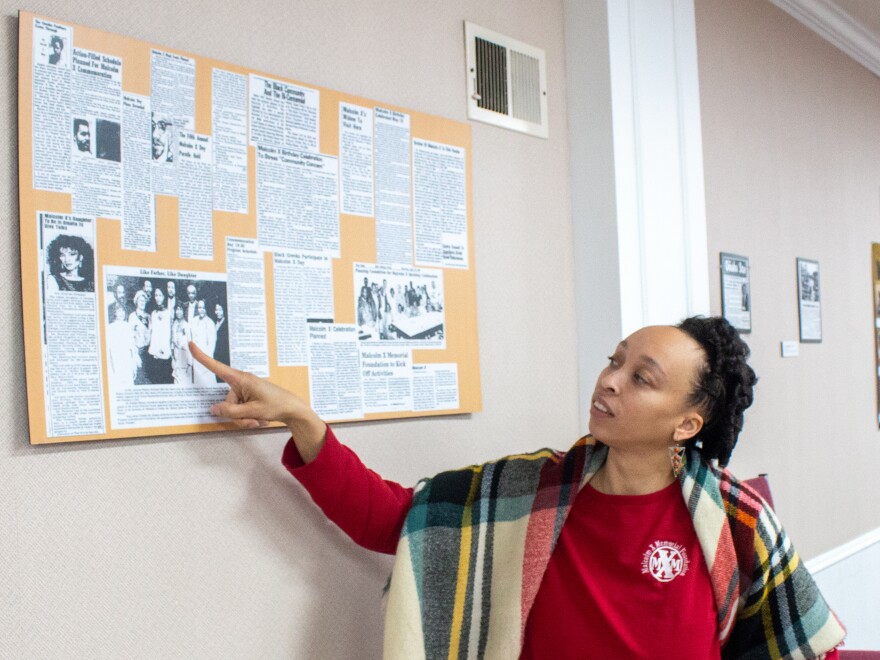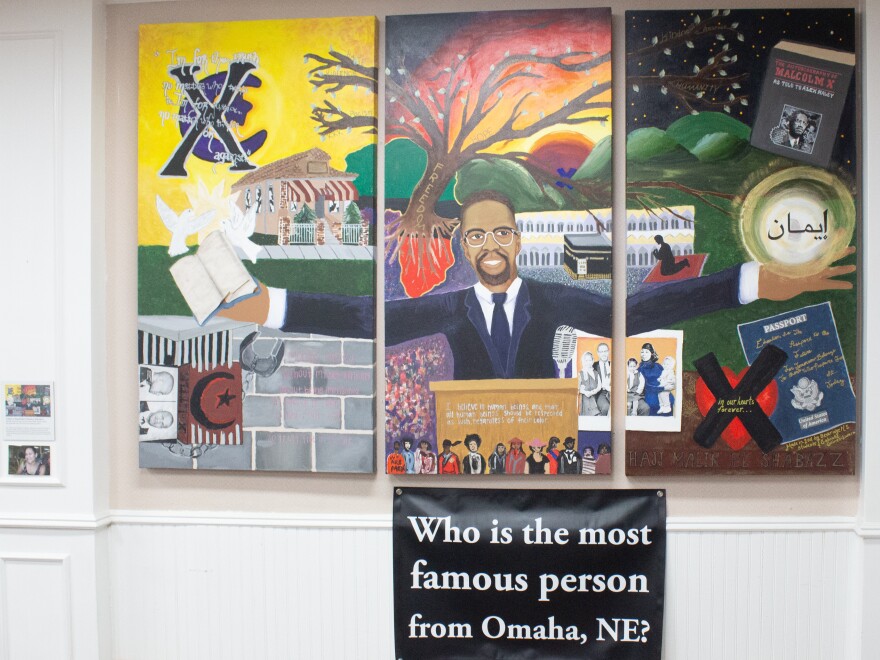Radio station owner William King of Omaha said Malcolm X's induction into the Nebraska Hall of Fame is "ironic that in 2024 that we're still saying a Black man or Black woman is still the first to do something."
On Sept. 12, 2022, Malcolm X became the first Black man or woman voted into the Nebraska Hall of Fame.
By May, a bust of Malcolm X will be inside the Nebraska State Capitol, along with 26 other Nebraskans.
"Proud. Proud to say I'm from Nebraska. Proud to say I'm from Omaha, same place Malcolm X was born," said Mareeno Allen.
He read minister Malcolm X's famous autobiography while in prison. Allen said the book turned his life around and said the honor is overdue for Malcolm.
"Should have been done a long time ago, but it's here now," Allen said.
In 2004 and 2007, the Nebraska Hall of Fame Commission proposed his induction but chose someone else.
Dyamund Lucas of Omaha is also surprised it took this long, but "I feel like it shows that our community is evolving."
Harsh realities helped shape him as a child
In 1925, Malcolm X was born with the name Malcolm Little.
Malcolm's father, Earl Little, began a Marcus Garvey Pan-Africanist chapter in Omaha, a nationalist movement. Shortly after Malcolm was born, the Ku Klux Klan threatened the Littles.
"The Klan showed up at his front door looking for his father," said JoAnna LeFlore Ejike, executive director of the Malcolm X Memorial Foundation in Omaha.
"They were looking for him, because he was 'stirring up trouble' in the so-called community. But the trouble was already there, you see, because in 1919 there was a lynching of Will Brown," LeFlore Ejike said.
Brown was accused of raping a white woman.
With tensions high in Omaha, the Littles escaped to Lansing, Michigan.

They escaped Omaha, but not trouble. In November 1928, the Littles family home was burned down. Malcolm believed a local white supremacist group was responsible.
Malcolm said his father was also lynched in Michigan. The police called it a "streetcar accident."
Malcolm X's legacy as an activist
In his autobiography, the human rights activist said those experiences shaped his beliefs.
Malcolm X changed his last name to X, rejecting Little as a slave name. He also referred to white people as devils.
In the deaths of James Chaney, Andrew Goodman, and Michael Schwerner in Mississippi, Malcolm X said, "all they've done is taken off their sheet, their Ku Klux Klan sheet, and put on a police uniform."
Malcolm X publicly criticized Martin Luther King Jr., arguing his teachings rendered Black people defenseless.
During his return to Omaha in 1964, Malcolm X said he offered to unite with MLK but maintained a stance of self-defense.
"The day for turning the other cheek to those inhuman brute beasts is long over," Malcolm said. "If you do not think that the Afro-American, especially in the upcoming, young generation, is capable of adopting the guerilla tactics now being used by oppressed people everywhere else on this earth, you are making a drastic mistake."
Malcolm X made a significant contribution to the Nation of Islam, growing its membership from just a few hundred members to about 30,000.
Later, Malcolm left the NOI after his pilgrimage to Mecca, Saudi Arabia. There he saw how Islam united people of all races, changing his view on America's racial divide. He changed his name again, this time to El-Hajj Malik El-Shabazz.
Back in Nebraska on a September day in 2022, the Nebraska Hall of Fame Commission voted 4-3, narrowly choosing Malcolm X over Emma Louise Pound as its next hall of famer.
Louise Pound was the first female president of the Modern Language Association, commonly referred to as MLA, and taught at the University of Nebraska–Lincoln.
Sara Crook, current commission chair, voted for Pound.
"I never felt like Nebraska particularly shaped him (Malcolm X), since he left as a young person. I believe he was around a year-and-a-half-old when they left, for reasons that are awful," Crook said.
She said she wouldn't vote for Gerald Ford either, because he also only lived in Nebraska as an infant.
After the vote, Crook motioned for a unanimous vote for Malcolm X, a tradition amongst the commissioners.
Chairman of the commission at that time, Ron Hull, cemented the vote. He argued Malcolm X turned his life around. Hull passed away in 2023, at 92. Hull had worked at Nebraska Public Media for nearly 70 years.
Historians long considered Malcolm X violent, "but the truth of the matter is, he himself was not violent," LeFlore Ejike said.
She said, "there is no recording of violence at any of his rallies or speeches, except for the day he was assassinated."

On Feb. 21, 1965, Malcolm X was assassinated in New York. Martin Luther King Jr. sent his condolences to Betty Shabazz, Malcolm's wife.
Decades later, Muhammad Aziz and Khalil Islam were exonerated for the assassination after spending more than 50 years in prison. Since then, they've been awarded a total of $36 million by the city and state of New York.
The case remains unsolved.
Moving forward in Nebraska
LeFlore Ejike said the spring statue ceremony and induction is perfect timing.
"May is actually the month that George Floyd was murdered, and a number of other modern day lynchings," LeFlore Ejike said. "It'll spark new conversations at the dinner table about what we're going to do next, because that's what Malcolm probably would be asking."
William King said Black Nebraskans are still fighting.
"Look at how poor people and minority people are still fighting for equality, justice and liberty," he said.
As a young entrepreneur in the salon industry and member of the Urban League of Nebraska, Dyamund Lucas said Malcolm's legacy can continue moving the conversation forward.
"We are not all the same, but that doesn't mean we can't be united," Lucas said.
The state will celebrate Malcolm X on May 22.
The Malcolm X Memorial Foundation will soon be unveiling a new cultural education center and outdoor event space as a result of a $20 million state grant.
Copyright 2024 Nebraska Public Media




